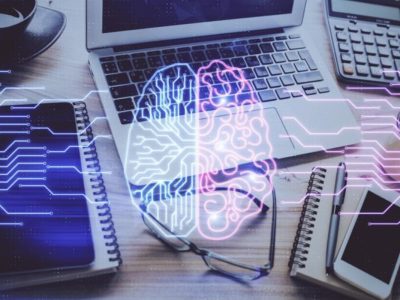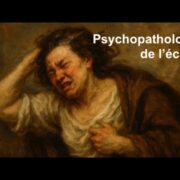Negative emotionality in depression is like a black cloud full of guilt, anger, unease, and sadness. The sufferer feels that there’s no way out. In fact, it’s an exhausting feeling of hopelessness, where they become completely lost and embedded for months in their mood disorder.
Negative emotionality doesn’t just refer to feelings of negativity and unease. It also means “feeling nothing”. The sufferer experiences anhedonia, which is the inability to feel pleasure, interest, or motivation.
Depression is one of the most complex psychological disorders. It isn’t just feeling sad and not wanting to get out of bed. In fact, those who suffer from depression hate themselves. They also experience feelings of guilt and absolute hopelessness.
Negative emotionality in depression
Major depression is one of the most common psychological disorders. However, it’s rather worrying that many people still assume that depression just means sadness. For example, if someone doesn’t want to go to work or continuously argues with their partner, they might not realize that this isn’t just a bad patch they’re going through or simple work-related stress.
Negative emotionality in depression is like a psychological filter that guides the mind to seek and process reality in a harmful way. Furthermore, other factors like an external locus of control play a role. This is when someone thinks that they’re unable to control anything. They also experience recurring negative thoughts and extremely low self-esteem.
Watson and Tellegen first proposed the model of negative emotionality in the 1980s. Their study suggested that it was explained by three factors: negative valence effect, anhedonia, and physiological changes.
Negative valence emotions mediate not only the way you process reality but the way you see and feel.
Guilt and anger build the prison of depression
This is a curious fact. We know that those who’ve lived through a relationship dominated by physical and psychological abuse have a higher risk of developing a depressive disorder.
The theory of negative emotionality demonstrates that not only sadness or hopelessness leads to depression. Anger and guilt can also lead to it.
Studies conducted by the psychology department of the University of the Balearic Islands confirm this fact. They found that women who were victims of domestic abuse needed to work on these emotions. On the one hand, they feel guilty for not having ended the relationship sooner. However, on the other, they’re angry about everything they go through.
Negative emotionality in depression and introspection
As we mentioned above, one characteristic of depression is helplessness. People with depression feel a lack of control over their surroundings and the sensation that, no matter what they do, nothing changes. In addition, introspection is an equally influential factor of negative emotionality in depression.
Introspection refers to the following processes:
- Feelings of loneliness. The sufferer feels that nobody understands what they’re going through.
- Uselessness. They feel they’re of no use to anyone.
- Constant irritability. Everything bothers or angers them.
- Hopelessness. This is the eternal leitmotif of depression. The sufferer thinks that tomorrow won’t be any better and that there are no solutions to their problems.

Anhedonia
Sufferers of negative emotionality don’t feel, react, or connect with their immediate reality. These aren’t catatonic states. Instead, the person ceases to feel a part of everyday life.
Anhedonia, apathy, and abulia describe these realities where people experience no pleasure, enthusiasm, or motivation. Furthermore, they’re unable to make decisions or react to their surroundings.
You should never assume that depression is nothing more than sadness. In fact, it’s a multifactorial disorder that manifests itself in different ways in different people.
For this reason, it’s essential to focus on the emotional aspects of these states of constant agitation or psychosomatic diseases that don’t respond to drugs.
As Federico García Lorca said, the most terrible feeling is that of dead hope. For this reason, if you feel that you’re experiencing any of the symptoms we mentioned in this article, don’t hesitate to ask for professional help.
The Opposite of Depression Is Vitality, not Happiness
The post Negative Emotionality in Depression appeared first on Exploring your mind.



















Comments